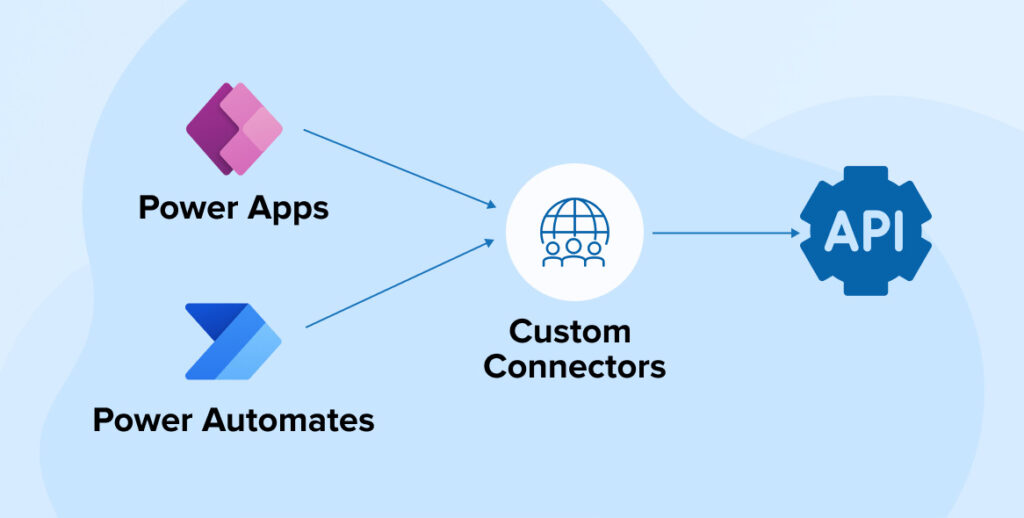Artificial Intelligence (AI) is a branch of computer science that involves the development of intelligent machines capable of performing tasks that would typically require human intelligence. ChatGPT is an AI model developed by OpenAI that uses machine learning algorithms to generate human-like text responses in a conversational manner.
These models are trained on vast amounts of data and can provide accurate and contextually relevant answers to user queries. AI and machine learning techniques have revolutionized various industries, enabling automation and enhancing decision-making processes. We will delve into the basics of AI, explore the workings of ChatGPT, and discuss the significance of AI models in the field of machine learning.
The Rise Of Artificial Intelligence
Artificial Intelligence (AI) and Machine Learning (ML) have become prominent technological concepts in today’s world. AI refers to the development of computer systems that perform tasks that typically require human intelligence, such as speech recognition, decision-making, and problem-solving. ML is a subset of AI that focuses on the ability of machines to learn and improve from experience without being explicitly programmed.
The importance of AI in today’s world cannot be undermined. It has the potential to revolutionize various industries, including healthcare, finance, retail, and transportation. By automating repetitive and mundane tasks, AI enables businesses to improve efficiency, productivity, and customer experience.
AI is transforming various industries by bringing innovation and efficiency. In healthcare, AI-powered systems facilitate accurate diagnosis, personalized treatment plans, and drug development. In finance, AI algorithms analyze vast amounts of data to detect fraud and assess investment opportunities. In retail, AI-powered chatbots assist customers and enhance their shopping experience. In transportation, AI enables self-driving cars and optimizes traffic management.
In conclusion, AI and ML are essential technologies reshaping the world we live in. Understanding the basics of AI and recognizing its impact across different industries is crucial as we move towards a more AI-driven future.
Chatgpt: Revolutionizing Conversational Ai
Bold and powerful, ChatGPT is revolutionizing Conversational AI. Developed by OpenAI, this AI-powered chatbot is making waves in the artificial intelligence world. Thanks to its advanced machine learning capabilities, ChatGPT is able to engage in human-like conversations, providing users with an unprecedented interactive experience.
With ChatGPT, you can witness the power of language models. This advanced AI system is designed to understand natural language inputs and generate coherent and contextually relevant responses. It has been trained on a vast amount of data, making it capable of answering questions, providing recommendations, and engaging in interactive conversations on a wide range of topics.
The features and capabilities of ChatGPT are truly remarkable. Its ability to understand and respond to nuanced queries allows for a more human-like interaction. Users can engage in extended conversations, explore creative writing prompts, and even use it as a coding assistant.
ChatGPT is just the beginning of what AI models can achieve. As technology continues to evolve, we can expect even more sophisticated and powerful conversational AI systems that will revolutionize the way we interact with machines and enhance various industries.
Unleashing The Potential Of Openai
Built on the principles of innovation and cutting-edge technology, OpenAI is revolutionizing the field of Artificial Intelligence (AI). With a mission to ensure that AI benefits all of humanity, OpenAI has emerged as a global leader in the development and deployment of state-of-the-art AI models. OpenAI’s contribution to the field of AI is evident through their highly acclaimed AI model, ChatGPT, which has garnered attention for its remarkable ability to generate human-like text. This breakthrough has paved the way for a myriad of applications, particularly in Natural Language Processing (NLP), where ChatGPT has proven to be immensely valuable. By exploring the capabilities of OpenAI’s AI models, we can unlock a world of possibilities in various industries, such as customer service, content generation, and virtual assistance. OpenAI’s dedication towards advancing AI technologies highlights their commitment to harnessing the true potential of artificial intelligence.
The Fundamentals Of Machine Learning
Machine Learning is a subset of Artificial Intelligence (AI) that focuses on training computer systems to learn from data and improve their performance without being explicitly programmed. It involves the use of algorithms and statistical models to enable computers to make accurate predictions and decisions. The process of Machine Learning begins with feeding a large amount of labeled or unlabeled data into the system, which is then used to train the model.
There are various types of Machine Learning algorithms, each designed for a specific purpose. The most commonly used ones are:
| Supervised Learning: | Uses labeled data to train a model and make predictions based on available inputs. It involves mapping inputs to desired outputs. |
| Unsupervised Learning: | Deals with unlabeled data and aims to discover patterns and relationships within the dataset without any predefined target variable. |
| Reinforcement Learning: | Focuses on training models to make decisions based on trial and error. The models learn by interacting with the environment and receiving feedback in the form of rewards or penalties. |
Understanding these building blocks is crucial in order to dive deeper into the world of Machine Learning and explore more advanced concepts and techniques.
The Role Of Neural Networks In Ai
Introduction to Neural Networks
Neural networks are a fundamental aspect of artificial intelligence (AI) and machine learning. They are structured to mimic the human brain’s ability to process and analyze information. These networks consist of interconnected nodes, or “artificial neurons,” that work together to perform complex calculations and make predictions.
Deep Learning: A Key Component of Neural Networks
Deep learning is a crucial component of neural networks. It involves training the network on vast amounts of data to optimize its performance. By incorporating multiple layers of artificial neurons, deep learning enables the network to learn hierarchical representations of data. This helps in identifying patterns, making accurate predictions, and performing tasks that were previously only achievable by humans.
How Neural Networks Enable AI Applications
Neural networks play a crucial role in enabling various AI applications. By leveraging their ability to process vast amounts of data, neural networks can identify patterns, recognize objects, understand natural language, and even generate human-like responses. The advancements in neural network architectures, such as ChatGPT from OpenAI, have revolutionized AI models and made them highly advanced and capable of performing complex tasks. These networks are continuously evolving, and their applications continue to expand across domains such as healthcare, finance, and autonomous systems.
Training A Chatbot With Machine Learning
Basics of Artificial Intelligence – Chatgpt – Openai – Ai Model – Machine Learning
Collecting and preparing data is the crucial first step in training a chatbot model with machine learning. High-quality and diverse data sources are gathered, including chat logs, dialogue transcripts, and customer interactions. This data needs to be thoroughly cleaned and preprocessed to remove noise, duplicate entries, and irrelevant information. The prepared dataset must be properly formatted and annotated to ensure it meets the requirements of the training process.
Once the data is ready, the next step involves actually training the chatbot model using machine learning algorithms. Various deep learning techniques such as recurrent neural networks (RNN) or transformer-based models like GPT (Generative Pre-trained Transformer) are utilized to train the chatbot. The model learns from the provided dataset to generate responses based on input queries. Training continues until the model achieves satisfactory performance in terms of accuracy and natural language understanding.
To improve the model’s accuracy and performance, fine-tuning is carried out. This involves retraining the model on additional data or specific domains to cater to different user requirements. The chatbot is continuously evaluated and adjusted to ensure consistent delivery of accurate responses. Feedback from users is crucial in the iterative process of fine-tuning and enhancing the model’s performance.
Enhancing Ai Chatbots With Reinforcement Learning
Blogs and articles related to artificial intelligence are gaining popularity, especially the ones focusing on ChatGPT developed by OpenAI. One way to enhance the performance of AI chatbots like ChatGPT is by leveraging the power of reinforcement learning. Reinforcement learning allows the AI system to learn and improve over time through interaction with its environment.
By applying reinforcement learning to ChatGPT, we can optimize its performance in various ways. For instance, we can train the model to provide more accurate and effective responses to user queries. Additionally, we can address the challenge of balancing model responsiveness and safety.
Reinforcement learning in AI revolves around the concept of reward and punishment. The model receives positive reinforcement when it generates appropriate responses, while negative reinforcement is given for incorrect or undesirable outputs. This iterative learning process helps the AI system improve its performance and deliver better results.
When optimizing ChatGPT’s performance, it is crucial to consider model responsiveness to ensure timely and efficient interactions with users. However, we must also prioritize safety by implementing measures to prevent the model from generating harmful or offensive content.
Ethical Considerations In Ai Development
The development of artificial intelligence (AI) brings forth a range of ethical considerations that demand careful attention. One critical challenge is ensuring bias and fairness in AI. Machine learning models are trained on existing data, making them susceptible to perpetuating biases and potentially discriminatory outcomes. It is vital for developers to implement strategies to mitigate bias and promote fairness throughout the AI development process.
Privacy and security concerns also arise in AI development. As AI systems collect and process vast amounts of data, protecting user privacy becomes paramount. Developers must prioritize robust security measures to safeguard sensitive information, ensuring that individuals’ data remains confidential and protected from unauthorized access.
Furthermore, responsible use of AI technology is of utmost importance. Ethical principles should guide the application and deployment of AI to prevent unintended harm. Developers should consider the potential societal impacts and establish transparent practices that prioritize accountability and responsibility.
Future Of Ai And Chatbots
As advancements in AI research and development continue to accelerate, the future of AI and chatbots is full of exciting possibilities. Predictions indicate that AI will play a crucial role in transforming various industries and revolutionizing the way we interact with technology.
One significant area where AI-powered chatbots are already making a significant impact is customer service. By using natural language processing and machine learning algorithms, chatbots can provide instant and accurate responses to customer queries, improving customer satisfaction and streamlining support processes.
Moreover, the potential applications of AI extend beyond customer service. In healthcare, AI can assist in diagnosing diseases and predicting treatment outcomes, while in finance, AI algorithms can analyze vast amounts of data to identify market trends and improve investment strategies. The possibilities are vast, ranging from autonomous vehicles to smart homes and personalized virtual assistants.

Credit: www.royalcyber.com
Frequently Asked Questions On Basics Of Artificial Intelligence – Chatgpt – Openai – Ai Model – Machine Learning
What Is Artificial Intelligence And How Does It Work?
Artificial Intelligence (AI) refers to the simulation of human intelligence in machines that are programmed to think and learn like humans. AI uses algorithms and data to make decisions and perform tasks, often mimicking human cognition. Machine Learning is a subset of AI, where machines learn from data without explicit programming.
How Does Chatgpt Work And What Is Its Purpose?
ChatGPT is an AI model developed by OpenAI. It uses a deep learning algorithm called transformers to generate human-like responses to text inputs. Its purpose is to provide conversational abilities to machines, enabling them to interact and respond to user queries naturally and in real-time.
What Are The Applications Of Ai In Today’s World?
AI has numerous applications, including chatbots, virtual assistants, recommendation systems, autonomous vehicles, fraud detection, healthcare diagnostics, and financial forecasting. It is also used in industries like banking, e-commerce, entertainment, and manufacturing to automate processes, improve efficiency, and enhance user experiences.
Conclusion
To sum up, understanding the basics of artificial intelligence is crucial in today’s digital landscape. The emergence of ChatGPT from OpenAI showcases the immense potential of AI models and machine learning technologies. By harnessing these advancements, businesses can enhance customer interactions and streamline processes.
As AI continues to evolve, staying updated and implementing these technologies will undoubtedly drive innovation and success in various industries. Embrace the power of AI and unlock a world of possibilities.






